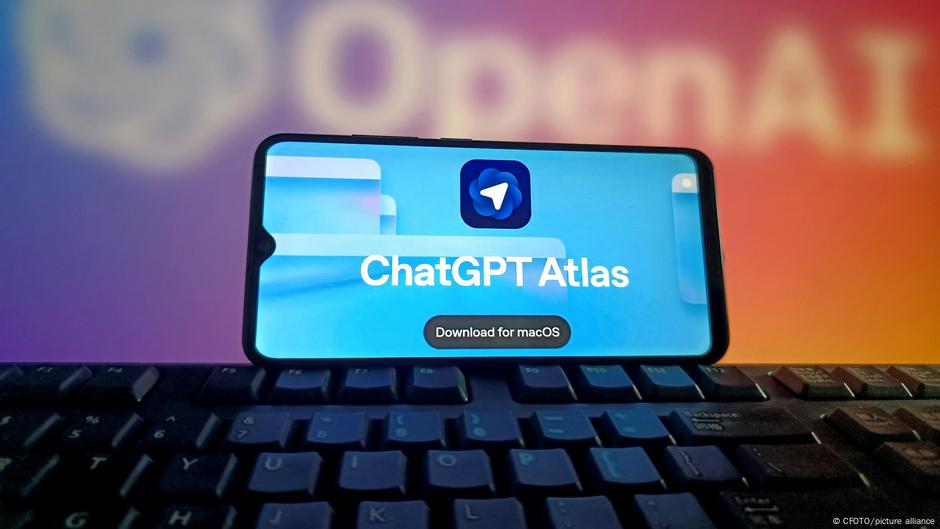
OpenAI launches browser to rival Google Chrome – DW – 10/22/2025
The US artificial intelligence company OpenAI said on Tuesday that it is launching its own web browser, Atlas, to rival Google‘s popular Chrome browser.
Atlas will be powered by OpenAI’s popular chatbot ChatGPT, as the California-based firm looks to revolutionize how people use the internet.
“Tabs were great, but we haven’t seen a lot of browser innovation since then,” said OpenAI CEO Sam Altman in a video presentation broadcast on Tuesday, speaking off a “rare, once-a-decade opportunity to rethink what a browser can be about and how to use one.”
What’s different about ChatGPT’s Atlas?
For instance, Altman suggested that the classic URL search bar at the heart of traditional browsers could be replaced by an AI chatbot interface.
The browser will initially only be available for Apple‘s Mac computers, the company said, adding that it is designed to help users complete “tasks without copying and pasting or leaving the page.”
Another key feature of the Atlas browser is its so-called “agent mode” which effectively surfs around the internet automatically on the user’s behalf, armed with a person’s browser history and predicting what sort of information they are likely to be looking for.
“It’s using the internet for you,” Altman said.
Criticism of AI-powered browsers
That’s one way of looking at it. But analyst Paddy Harrington of London-based market research group Forrester warned that another way of thinking about OpenAI’s new browser is that it’s “taking personality away from you.”
“Your profile will be personally attuned to you based on all the information sucked up about you,” Harrington told the Associated Press (AP) news agency. “OK, scary. But is it really you, really what you’re thinking, or what that engine decides it’s going to do? And will it add in preferred solutions [to users’ queries] based on ads?”
Either way, Harrington said it will be a big challenge for Atlas to “[compete] with a giant who has ridiculous market share.”
Atlas launched in Chrome-dominated market
Since launching in 2008, Google Chrome has amassed around 3 billion users worldwide, blowing rivals such as Microsoft’s Internet Explorer and then Edge browsers out of the water.
But AI chatbots such as ChatGPT are increasingly summarizing information on the internet so efficiently that many users are turning to them rather than the traditional practice of clicking on links suggested by a browser.
OpenAI has said ChatGPT already has more than 800 million users, while a survey conducted on behalf of AP this year found that about 60% of Americans – and 74% of those under 30 – use AI to find information at least some of the time.
Browsers such as Chrome have also integrated AI summaries into their search results, generally visible at the top of the results page above the first link, although concerns have been raised about the accuracy of this information.
How accurate is information sourced by AI?
On Wednesday, research published by the European Broadcasting Union (EBU) and the BBC found that 45% of AI responses studied contained at least one significant issue, with 81% having some form of problem.
The study assessed AI assistants in 14 languages for accuracy, sourcing and ability to distinguish opinion versus fact, including ChatGPT, Copilot, Gemini and Perplexity.
In one case, ChatGPT was found to be confidently reporting that the current Pope is Pope Francis, several months after the former pontiff’s death – the sort of error which can significantly undermine trust and reliability, with potentially harmful effects, according to EBU Media Director Jean Philip De Tender.
“When people don’t know what to trust, they end up trusting nothing at all, and that can deter democratic participation,” he told the DPA news agency.
Edited by: Elizabeth Schumacher
First Appeared on
Source link






